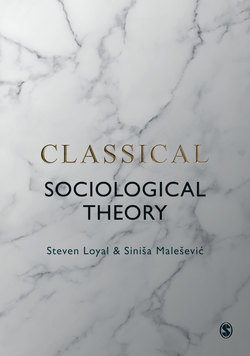Читать книгу Classical Sociological Theory - Sinisa Malesevic - Страница 45
На сайте Литреса книга снята с продажи.
Conclusion
ОглавлениеTogether with most other social sciences, sociology has often been labelled as being deeply Eurocentric (Connell, 2007; Bhambra, 2007). In some respects this is true as the conventional sociological canon consists solely of European scholars (Marx, Durkheim, Weber or Simmel) and much of the sociological theorising over the past two centuries was produced by Europeans (or their descendants), for Europeans, and espousing a particular preoccupation with very European concerns. Moreover, sociological research has often benefited from the legacies of colonialism and imperialism and some non-European intellectual contributions have been deliberately ignored. However, as Hall (2001) and McLennan (2015) rightly argue, some of the post-colonial and de-colonial critiques also romanticise indigenous intellectual traditions and offer a rather static view of the contingent and contradictory historical processes. In this context one should not focus on recovering the non-European intellectual traditions just for the sake of some kind of quasi-equal representation or as a lazy form of political correctness. Instead sociological contributions should be analysed and judged on their intellectual merits. Both Ibn Khaldun and Confucius qualify easily on this account: while Confucius’s social philosophy has established a foundation for the analysis of complex social relations between the state and society and as such has influenced millions of individuals throughout Asia, Ibn Khaldun is the true pioneer of comparative historical sociology.
